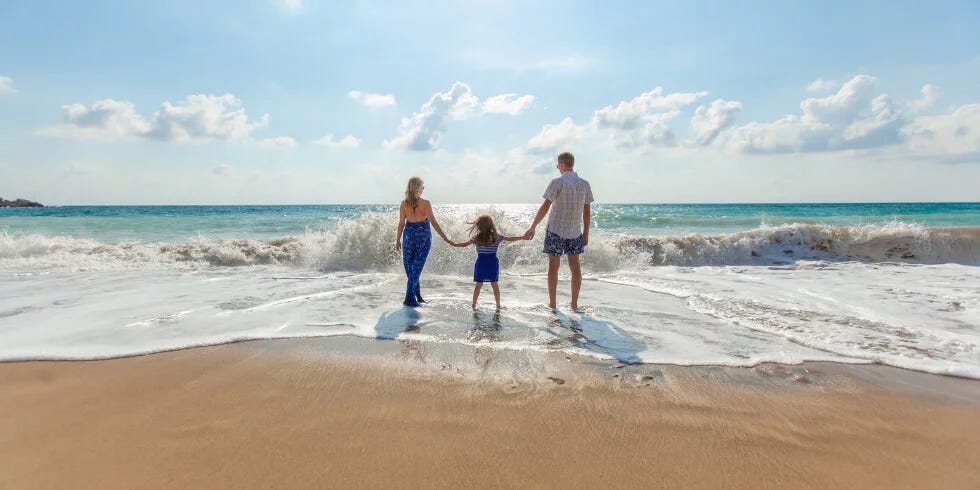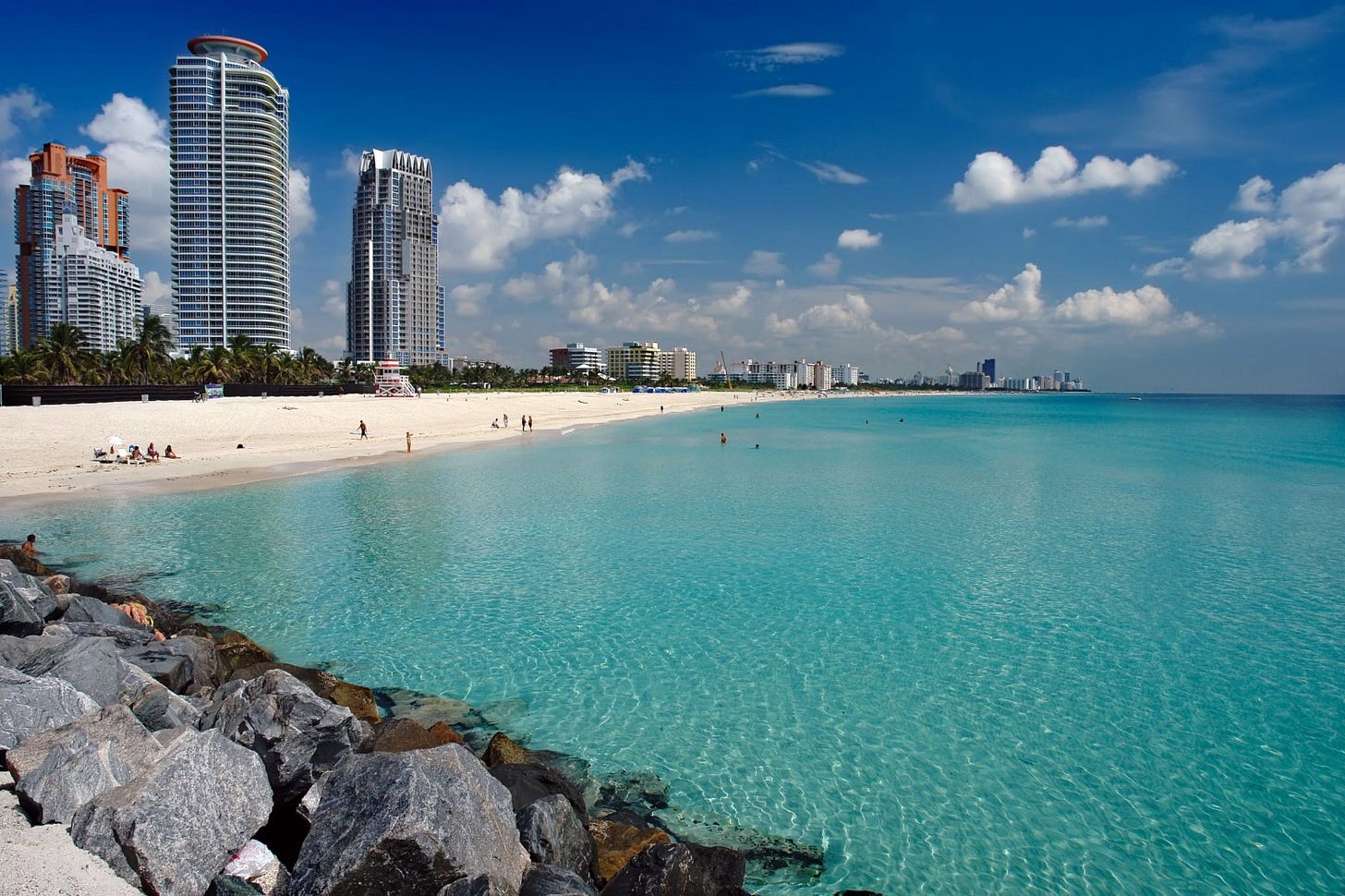Move to Liberty: The Case for Florida
CATO annually ranks all fifty US states in terms of freedom. Florida has held the #2 spot for 8 years running, second only to New Hampshire but with better weather. Even before that it almost always ranked in the top ten. Anyone looking for a better life in a freer place should look closely at this state.
What’s so free about Florida?
A large part of Florida’s high freedom score is about money. Per Cato, “Florida’s state-level tax collections are 1.4 standard deviations below the national average (it has no state income tax). Its local tax collections are a little lower than average.”
Also in the financial plus column are protections against state seizure of property. “Florida has the second-strongest regulatory takings law, after Arizona. Florida has gone further than just about any other state to tighten criteria for eminent domain...Another strength for Florida is civil asset forfeiture, with a law requiring proof ‘beyond a reasonable doubt’ for forfeitures.”
Many blue states, by contrast, have a plantation-owner attitude about income and property, limiting their take only to the degree that the slaves can’t work any harder or don’t escape too much. A state that has as much fiscal self-restraint as Florida isn’t just behaving more responsibly — it’s also taking a less predatory attitude toward its citizens. And that bodes well generally.
Florida also has in place a right to work law, universal educational savings accounts (school choice), and constitutional carry (enacted in 2023).
Of course, when you establish an environment of freedom, you also get a higher standard of living because business is free to create. A good example of that is Florida’s new railroad. Brightline, a private rail company, recently built a line between Miami and Orlando. Passengers seem to love it. Reason did a video segment on it.
A positive political trajectory as well
Some of these advances in liberty are relatively recent, reflecting a rightward shift in the state.
In 2018, Florida made a pivotal choice in leadership: Governor Ron DeSantis (R). He turned out to be one of the best governors in the country, a supremely competent manager, sympathetic to liberty and with the courage to do the right thing (he had one of the lightest-touch COVID responses, despite being blasted for it). However, his election was close. DeSantis’ opponent was Andrew Gillum, a leftist progressive who, after losing the 2018 election, was later found in a hotel room drunk out of his mind and in the company of male prostitute who just had overdosed on crystal meth.
The same election would probably not be so close today. The migration of conservatives to Florida from red states has been improving the political landscape, as demonstrated in Republican domination of recent elections. It’s likely that this trend will continue as pro-liberty types continue to migrate out of blue state hellholes.
And then there’s the weather
The main reason many people choose to live in Florida is obviously the warmth and the 1,200 miles of sun-drenched beaches. Florida is the warmest state in the US, with an average temperature of 71.5 degrees. Winters are relatively mild, and summers, though often humid, typically peak in the 90 degree range. The place is so pleasant that the latest tourist data put the number visiting annually at 137 million.
In other respects, is Florida a good state to live in?
Florida is ostensibly ranked highly overall for quality of life by US News (#10 out of the 50 states), DataPandas (#10), and WalletHub (#6), but a closer examination reveals that where it beats the national medians for things like crime and education it does so by only a little. That said, a bit above average in these respects still beats most states, particularly many bottom-ranked states like Louisiana, New Mexico, West Virginia, and so on. And too, if you don’t like the cold, this is one of the very few good options you have.
I would add that states are big places, and without question there are parts of Florida where the quality of life is far superior. You can find lists of the better areas in US News, Strategistico, BankRate, and Travel & Leisure. For what it’s worth, there were six cities that these lists had (mostly) in common: Fort Myers, Jacksonville, Orlando, Port St. Lucie, Sarasota, and Tampa. A more granular way to find not just good cities but good specific neighborhoods within cities is Niche.
For retirees, there is one additional place worth mentioning
Look at any list of best retirement communities in the US, and at or near the top you’ll see The Villages, located in central Florida. It’s one of the largest 55+ retirement communities in the US, with 60,000 units and 115,000 residents. It’s also one of the best. The scale of the operation enables it to provide nightly free entertainment, shopping plazas, recreation centers, golf courses, swimming, tennis, on-site hospital and public safety department, which includes EMS/EMT and fire service. It’s such an impressive privately owned community that Reason did a write-up on it.
The competition
The one state that ranks higher than Florida in overall liberty is New Hampshire. If you read my analysis of that state, you’ll see that on the question of liberty alone it’s inescapably #1. The structure of New Hampshire’s state government and the character of the population, combined with the most active state libertarian group in the country — by far — makes it pretty unbeatable in that regard. However, if the cold bothers you or if it’s always been your dream to live near a sunny beach, Florida may be your best choice.
A short film on why one libertarian family moved to Florida
Reason journalist Zach Weissmueler made a short film about his move from California to Florida, and why he made the move.





